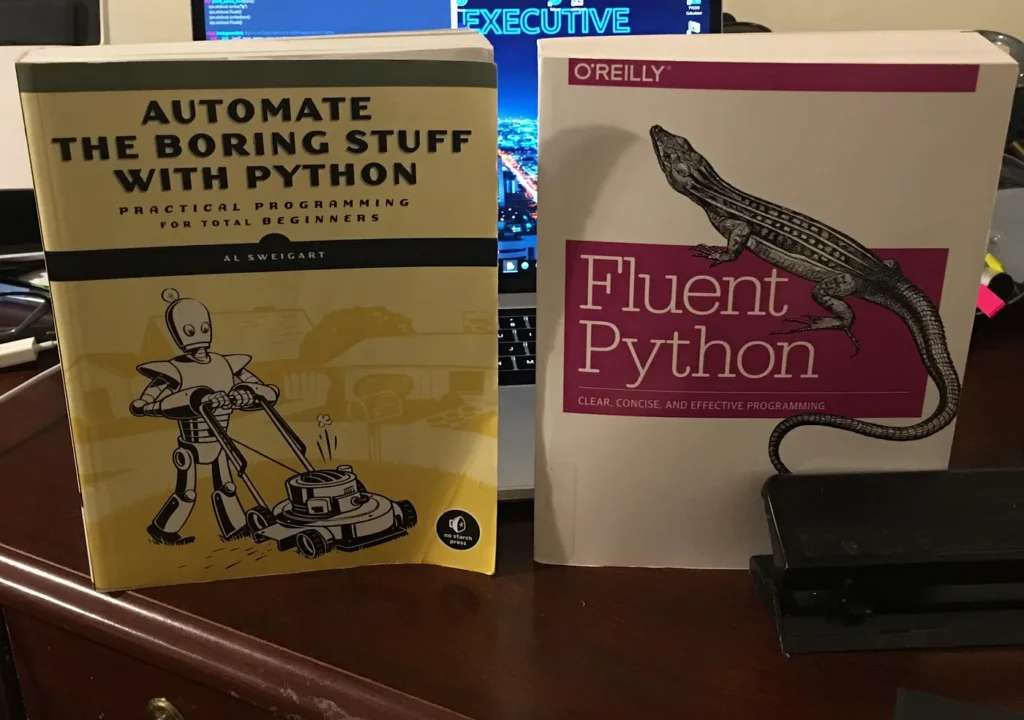Python is more than just a programming language—it’s a gateway to innovation, problem-solving, and mastery of modern technology. Over the years, I’ve encountered resources that have profoundly shaped my understanding and application of Python. Here are six books that changed my perspective and why I recommend them to anyone serious about Python development.
1. Learn Python the Right Way
This book is a beginner’s guide that goes beyond the basics. It emphasizes practical problem-solving and offers exercises to reinforce learning. The hands-on approach makes it a favorite for both novices and those looking to strengthen their fundamentals.
Key Takeaway: Mastering Python basics is essential for building a strong foundation.
2. Build A Large Language Model
A revolutionary guide that introduces the mechanics of large language models, this book is invaluable for those delving into AI. It provides step-by-step insights into creating models similar to GPT, making advanced topics accessible.
Key Takeaway: Python’s versatility shines in the field of AI and natural language processing.
3. Data Science from Scratch (First Principles with Python)
This book breaks down data science concepts using Python, starting from the ground up. It’s perfect for those wanting to understand data manipulation, algorithms, and visualization techniques without relying on pre-built libraries.
Key Takeaway: Python enables data-driven decision-making when understood at a granular level.
4. Introduction to Python for Computational Science and Engineering
An essential read for computational scientists, this book explores Python’s application in solving complex problems in science and engineering. It’s a must-have for professionals in technical fields.
Key Takeaway: Python is a powerhouse for computational problem-solving and simulations.
5. Learning the Pandas Library
Pandas is the backbone of data manipulation in Python, and this book provides a comprehensive understanding of its capabilities. From cleaning data to creating advanced analytics, it’s an indispensable resource for data professionals.
Key Takeaway: Efficient data manipulation is a game-changer, and Pandas is your ultimate tool.
6. Fluent Python
This book dives deep into Python’s most powerful features, such as data structures, object-oriented programming, and advanced techniques. It’s ideal for experienced developers looking to write Pythonic code that’s efficient and elegant.
Key Takeaway: Writing idiomatic Python unlocks the language’s true potential.
7. Automate the Boring Stuff with Python
This book focuses on using Python to automate everyday tasks like organizing files, sending emails, and web scraping. It’s ideal for both beginners and anyone looking to streamline repetitive work through coding.
Key Takeaway: Python’s practical applications make life easier by automating mundane tasks.
Final Thoughts
Each of these books has played a pivotal role in my Python journey. Whether you’re a beginner, a data scientist, or an AI enthusiast, these resources will expand your perspective and elevate your skills. Python is a lifelong journey, and with the right guidance, the possibilities are endless.
Share this:
- Click to share on Facebook (Opens in new window) Facebook
- Click to share on X (Opens in new window) X
- Click to share on LinkedIn (Opens in new window) LinkedIn
- Click to share on Reddit (Opens in new window) Reddit
- Click to share on Pinterest (Opens in new window) Pinterest
- Click to share on Pocket (Opens in new window) Pocket
- Click to share on WhatsApp (Opens in new window) WhatsApp
- Click to email a link to a friend (Opens in new window) Email

